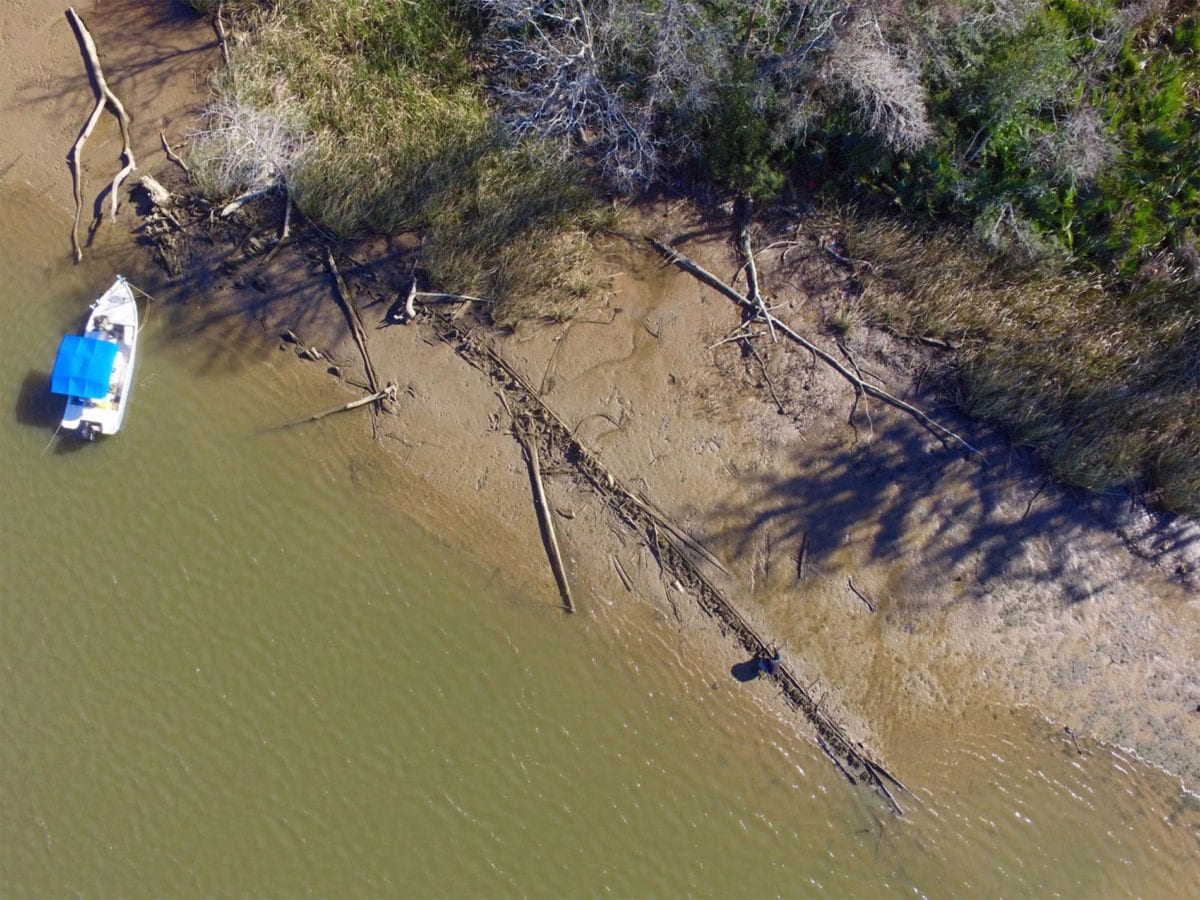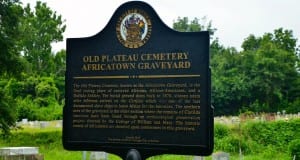
The Last Ship to Bring Slaves to the U.S. May Have Been Found: National Geographic
By David Underhill –
MOBILE, Ala. – Maybe it once made sense to allow the police to put bad dudes out of business by seizing their stuff.
“Civil forfeiture” gave cops an OK to snatch dope dealers’ cash, vehicles and other assets without having to wait for trials and convictions. But these seizures became so easy and lucrative that they began to rest on flimsy evidence about all sorts of supposed crimes and to form a large part of the budget for financially anemic police departments.
The abuses turned so grotesque that even the Alabama legislature is wondering whether to curb them.
None of this has deterred attorney general Jeff Sessions. Despite all the effort he has put into harassing immigrants and answering investigators’ questions about meetings with Russians he can’t recall, he has also found time to protect civil forfeiture. He’s trying to enlarge the federal capacity for it and to override state laws restricting it.
Lost Is Found
A recent discovery in the swamp beside his hometown of Mobile gives him an ideal opportunity to show his devotion to this cause.
In 1860 slavery remained legal in America, although importing new slaves from Africa had been outlawed half a century earlier. On a dare and a bet, two local mariners and plantation owners decided to break the law. They outfitted a cargo ship called the Clotilda with cages, sailed it to west Africa and returned with 110 slaves they had bought.
By night they entered the bay, slipped past Mobile at the top of the bay and followed the river a few miles upstream into the swamp. There they unloaded the cargo of fresh slaves, torched the ship to hide the evidence of their crime and returned to the city to collect on their bet.
A few years later the Civil War, President Abraham Lincoln and Congress extinguished slavery, and many of the recently captured Africans gathered into a self-governing community on the riverbank near where they had come ashore from the Clotilda. Africatown, as it’s still called, was later engulfed by the expanding city of Mobile and an industrializing waterfront.
A residential core of a few thousand inhabitants endures while factories, docks, tank farms and pipelines constantly chew into the edges of Africatown.
But Ben Raines, a reporter for the online remnant of the Mobile daily paper, has just posted a report giving a jolt of hope to activists who’ve been striving to revive the community. Relying on historic documents, local lore and unusually strong winds that drove water away from normally submerged places, he found the likely remains of the burned Clotilda buried in mud along the swampy riverbank. University researchers he summoned to the scene agree it looks like the genuine item.
This news has echoed around the world, with sensational headlines such as this:
“Last African slave ship discovered in Alabama swamp near continuing community of Africatown!”
Immediately conversations began about how to treat this find. Should it remain in place but be protected somehow from plunder and decay? Should it be dug out of the mud and placed in a museum? The history museum in downtown Mobile would presumably be delighted to have it. But a new museum in Africatown might be more appropriate, and that would boost revitalization of the community.
Sessions to the Rescue

A sign designates the historic nature of Africatown near Mobile, home to some of the last known slaves illegally shipped to the U.S., where activists say another “environmental injustice” against poor, minority people is underway: Glynn Wilson
Whatever the decision, money will be required — lots of money. That’s where Jeff Sessions and civil forfeiture could enter the picture.
The Clotilda was a vehicle used, without doubt, in the commission of multiple major crimes for which the perpetrators were never convicted and from which they profited greatly. These are fitting circumstances for applying the civil forfeiture procedures that Sessions loves so much. And justice would be served by doing so.
The law favors passing assets — everything from pickup trucks to royal thrones — along through family bloodlines. Everybody in Mobile knows of the family whose sea captains pulled off the Clotilda conspiracy. Their name is sprinkled across the region on streets and parks, they own parcels of land everywhere in the vicinity it seems, and the name threads through the historic roster of Mardi Gras queens and attendants.
These are the living beneficiaries of felonies never punished. If local authorities won’t do their duty, attorney general Sessions must.
He should begin civil forfeiture proceedings against this family for the full cost of excavating the wreck of the Clotilda and installing it in a local museum — or whatever other decision the Africatown community might reach about how to treat the skeleton of this slave ship.
Besides being a symbolic rectification of one particular injustice, such a move by Sessions would create a valuable precedent. Not just the Clotilda and not just slavery but numerous other abiding offenses await measures to rectify them.
The number of these injustices is actually countless. But the Clotilda would be as good a place as any to begin. Then the campaign could spread outward from there. That would mean the voyage of the Clotilda has not ended. Its resurrection would serve as the legal flagship for a campaign of historic rectifications.
Perhaps Alabama’s new U.S. Senator, Democrat Doug Jones, would be willing to help.
Any place with this prospect for greatness that failed to carry it out would probably qualify, in President Trump’s words himself, as a “shithole country.” Come on America. Show the world you are great again. Save the Clotilda and Africatown.
—
Related Coverage
In a last gasp effort to save their community from poverty and environmental injustice, a group of people in Africatown have sued International Paper claiming the company failed to follow federal clean-up regulations before shuttering a paper mill there and bulldozing the site, leaving behind hazardous chemicals that continue to spread in the area, affecting the health and property of residents. The suit also charges that International Paper and other defendants sought to hide these violations from the public and government officials.
“They were supposed to retrofit the plant so that it didn’t release harmful substances into the community and they chose not to do that,” said Donald W. Stewart, one of the attorneys handling the case. “They just shut it down and bulldozed the plant to the ground.”
International Paper, which is based in Memphis and reported sales of $21 billion in 2016, denies the allegations. In response to a question on the health and safety practices of its production operations, a spokesman for the company said: “As with all our operations, we adhere to all federal, state and local regulations…”
Of course in Alabama and in the United States now under President Donald Trump, industry writes the standards so they fall into compliance.
Meanwhile it is worth nothing that the Clotilda was sponsored by Timothy Meaher, a wealthy Alabama businessman, on a bet that he could evade authorities and successfully land an illegal slave ship in Mobile. He was caught but never convicted. The landing site, now covered by oil storage tanks, is on land still owned by the Meaher family. Perhaps his descendants might be willing to pay to save the Clotilda and Africatown?
‘Still fighting’: Africatown, site of last US slave shipment, sues over pollution
Video















This seems like justice, and I want justice and compensation as much as anybody, but I don’t think we should be complicit in the evil policy of asset forfeiture. There must be another way to accomplish the goal. Maybe eminent domain? Asset Forfeiture needs to die an immediate death.
I agree, Todd…but as long as Sessions remains a forfeiture fan I thought it would be instructive to challenge him to use it…and find out whether he’s willing to apply it equally to all–or reserves it only for small time operators on the street.
I think David was being satirical, Todd.
But thanks for the comment, Hayduke.
So would you say Hayduke Lives?